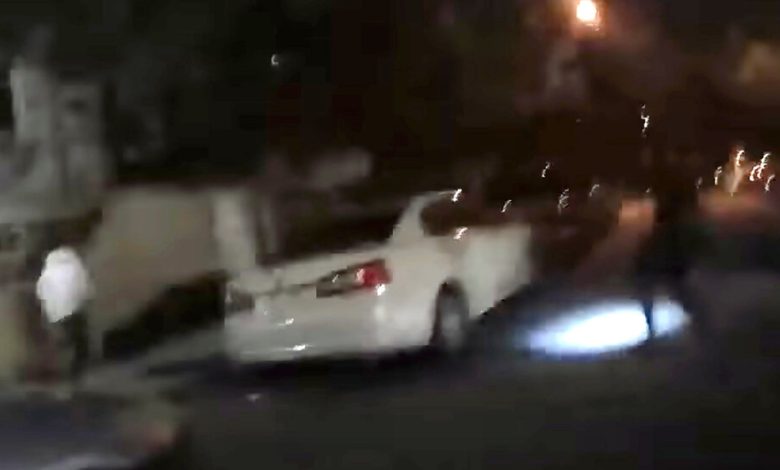Police Officer Who Shot a Man in the Back Is Charged With Assault

A 40-year-old police officer was running toward the sound of gunfire at about 3:15 a.m. in Paterson, N.J., the state’s third largest city. A young man in a white sweatshirt darted out nearby. The officer followed him and can be heard on video repeatedly ordering him to drop a gun.
But the officer, Jerry Moravek, never told the man, later identified as Khalif Cooper, to stop running before firing his weapon, according to video from a body-worn camera. Mr. Cooper, then 28, was shot in the back as he ran, leaving him with a disabling spinal injury.
On Monday, the state’s attorney general, Matthew J. Platkin, took the unusual step of charging Officer Moravek with aggravated assault and official misconduct. Mr. Platkin said that Officer Moravek’s decision to shoot violated New Jersey’s use-of-force policy, which requires using the least amount of force reasonable and necessary.
“The allegations that we are discussing today fall so far outside these confines — shooting an unarmed man in the back, resulting in a serious injury — that criminal charges are appropriate,” the attorney general said.
According to a video of the June 11, 2022, shooting released by the Passaic County prosecutors office, a gun was found in the vicinity of the shooting, but Mr. Platkin said it was not “in the victim’s possession or within his reach.”
“With respect to a fleeing suspect, deadly force can only be used when the suspect’s escape would create an imminent danger of death or serious bodily injury to the officer or to a member of the public,” he added during a news conference held to announce the charges.
Mr. Moravek’s lawyer, Patrick Caserta, said the criminal charges were not justified.
“During a short foot chase, there came a time when Officer Moravek believed his life and the life of other people in the street was at risk,” Mr. Caserta said in a statement.
“He believed at that split-second that the person he was chasing was turning to fire that handgun at him and he realized that if he missed, the bullets could strike anyone nearby. He made that split-second decision and fired his weapon.”
The state’s Office of Public Integrity and Accountability, led by Thomas Eicher, investigated the shooting.
“Under the law, discharging a firearm is meant to be a last resort, used by officers when they or the public face an imminent threat of death or serious injury. That just wasn’t the situation here,” Mr. Eicher said in a statement. “This lapse of judgment, this violation of the law and police procedures, has had a steep cost for the victim and it must have consequences.”
The gunshot left bullet fragments in Mr. Cooper’s spine, leaving him unable to walk, according to the attorney general’s office. He could not be immediately reached for comment about the charges now facing Officer Moravek.
After Mr. Cooper was on the ground and handcuffed, Officer Moravek can be heard asking him, “Why did you run from me?”
“I was scared,” Mr. Cooper said, “but I don’t got no gun though.”
